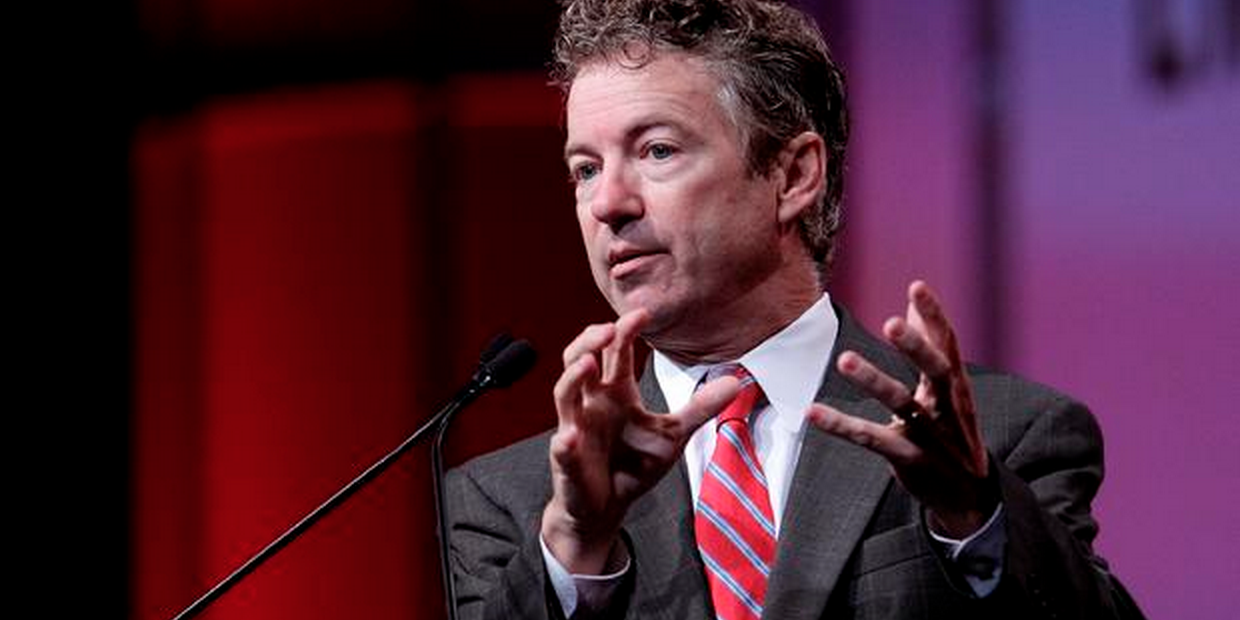Rubin points to disagreements between many libertarians and conservatives on issues like Ferguson, police militarization and, of course, foreign policy, contending that these may be becoming more salient than shared opposition to Obamacare or the stimulus.
Videos by Rare
These dividing lines, she writes, “now reveal that while interests coincide, conservatives are not libertarians and, in fact, on key issues libertarians are identical in outcome, if not motivation, to liberals.”
Liberal-tarians, anyone?
This isn’t a new argument. Bill Kristol recently attributed Rand Paul’s popularity to the senator’s “liberal views.” Last year, Karl Rove called Justin Amash the “most liberal” Republican.
Most conservative and Tea Party groups actually rank Paul and Amash among the most conservative members of Congress.
While Ronald Reagan once called libertarianism the “heart and soul of conservatism,” many on the right have long held a different view.
“To be blunt,” Rubin argues, “conservatives respect authority and crave social order; libertarians instinctively recoil from appeals to both.”
Libertarianism isn’t always conservative. Some forms of libertarianism treat people too much like atomistic individuals, which is not how human beings really live.
Some libertarian arguments that make sense at a micro level become more problematic at a macro one. On the micro level, it doesn’t matter in principle if one fast food restaurant has someone cooking hamburgers without the proper paperwork to be in the United States. On the macro level, tens of millions of illegal immigrants to a welfare state is a more debatable proposition.
Similarly, if one hotel owner does not wish to rent a room to a person of a different race, on the micro level that is an exercise of property rights and freedom of association. But if nearly all hotel owners in a large part of the Eastern seaboard refuse to rent rooms to people of one particular race, a race that had been disproportionately impoverished by legal slavery and state-sanctioned segregation, on the macro level, we are dealing with something else.
But there are times when libertarianism applies conservative logic better than most conservatives do. Conservatives have long understood that anti-poverty programs can trap people in poverty, economic stimulus programs can actually hurt the economy, education programs can actually diminish the quality of education.
Why is it so hard to believe that we can have national security policies that actually make us less safe?
Conservatives understand that the test of how much we care about education, the arts or the environment is not how many taxpayer dollars we are willing to spend. Why does this logic go out the window with police and military spending, which all conservatives and most libertarians acknowledge are legitimate functions of government?
We conservatives understand that when bureaucrats or activists ask for more money or power in domestic affairs, we should not automatically believe them. We understand that when government employees say a program that pays them well works, we should not necessarily take those claims at face value.
So why automatically believe the beneficiaries of Pentagon largesse when they say their government spending is sacrosanct, or the torturers when they say torture works, or a police chief who says he needs expensive military equipment in a town of 10,000 people?
Conservatives appreciate that if we spend trillions on a war on poverty, we should see signs that the war is actually being won. If we are instead seeing poverty remain stable or increasing, tough questions need to be asked.
So why not expect that if we spend trillions on a war in Iraq, we should see signs that the war is actually being won? If we are instead seeing jihadists operate more freely, Iran become more powerful, and an Iraqi government that cannot secure the country without American troops, tough questions need to be asked.
When conservatives raise questions about the results of liberal spending, they are accused of not caring about health care, education or poverty.
Maybe, it is said, that conservatives hate the poor, teachers or minorities.
So when anyone questions the results of Republican spending, why do some conservatives say critics don’t care about national security, crime or public safety? Maybe, these conservatives say, their critics hate the troops, the cops, or even America itself.
Libertarianism helps conservatives think through their critique of big government more clearly, realizing that some of the lessons apply even to the tasks conservatives agree government should perform.
Those insights aren’t liberal (at least in the non-classical sense). The demands for more government spending without accountability are liberal.



